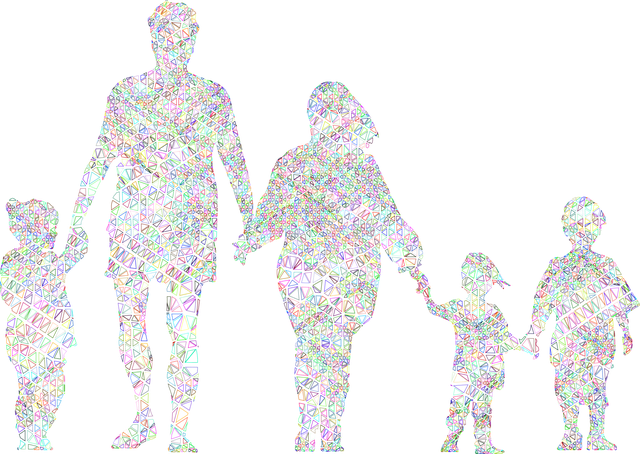Paternity disputes are complex legal battles over child parentage, often driven by lack of acknowledgment or uncertainty of biological fathers. These disputes involve custody, visitation, financial support, and emotional turmoil for all involved, especially children. Jurisdiction-specific laws, DNA testing, and court decisions prioritize the best interests of children while navigating their parents' conflicting claims. Access to legal aid and streamlined processes are vital to resolve these issues fairly and efficiently, alleviating emotional and financial burdens on families.
In many societies, paternity disputes pose complex challenges, impacting families and children profoundly. This article explores these contentious issues from a legal perspective, delving into the causes and consequences of paternity disputes. We analyze the current support systems and identify key challenges, offering insights into potential reforms for effective resolution. By understanding the complexities and implications of paternity disputes, we aim to enhance support mechanisms and foster more positive outcomes for all involved.
Keywords: paternity dispute, legal perspective, family impact, support systems, resolutions
- Understanding Paternity Disputes: A Legal Perspective
- The Impact on Families and Children
- Existing Support Systems and Challenges
- Proposed Solutions and Reforms for Effective Resolution
Understanding Paternity Disputes: A Legal Perspective

Paternity disputes are complex legal matters that arise when the parentage of a child is in question. These disputes can involve biological fathers who seek to establish their parental rights, as well as stepsparents or other individuals who may be seeking recognition as a child’s parent. From a legal perspective, understanding these disputes requires a deep dive into family law and the specific laws governing parentage in each jurisdiction.
In many cases, paternity disputes begin with a lack of acknowledgment or uncertainty about the biological father’s identity. Legal proceedings can include DNA testing to establish parental links, as well as arguments over custody, visitation rights, and financial support obligations. The court’s role is to ensure the best interests of the child are served while navigating the emotional complexities involved in such cases.
The Impact on Families and Children

When a paternity dispute arises, it can have profound implications for the entire family dynamic. These conflicts often lead to emotional turmoil, especially for children who may feel caught in the middle. The impact extends beyond legal matters; it affects the child’s sense of security and identity. Unresolved disputes can result in long-term psychological effects, causing anxiety, confusion, and even shaping their view of relationships and family structures.
Children in such situations require support and guidance to navigate these complex emotions. Clear and consistent communication from both parents is vital to help them understand the process and assuage their fears. Legal systems play a crucial role in facilitating fair resolutions, ensuring children’s best interests are considered, and providing closure or stability for all family members involved in a paternity dispute.
Existing Support Systems and Challenges

Existing support systems for parentage recognition and disputes vary across jurisdictions, with some countries having robust frameworks in place while others struggle to provide adequate assistance. Legal aid and pro bono services often play a crucial role in helping individuals navigate these complex issues, offering guidance and representation to those who cannot afford private counsel. However, the accessibility of such services can be limited by geographical location and financial constraints.
One significant challenge in paternity disputes is the lack of consistent record-keeping and documentation. Establishing paternity, especially in cases where the biological father is unknown or denies involvement, requires thorough investigation and testing. The cost and time associated with DNA testing and legal proceedings can be deterrents for some parents, leading to prolonged uncertainty regarding their children’s parentage. Efforts to streamline these processes and make them more affordable are essential to ensuring that all parents have access to justice in paternity disputes.
Proposed Solutions and Reforms for Effective Resolution

In addressing paternity disputes, proposed solutions often center around enhancing legal frameworks and access to resources. One key reform is the establishment of centralized, user-friendly systems for determining parentage. These platforms can streamline the process by providing secure, accurate DNA testing services, simplifying legal documentation, and offering accessible avenues for dispute resolution.
Additionally, expanding legal aid programs specifically tailored for paternity cases can ensure that all parties have equal representation. This includes educating both parents about their rights and obligations, facilitating mediation, and encouraging amicable resolutions whenever possible. Such reforms aim to reduce the emotional and financial strain associated with paternity disputes while upholding the best interests of all involved, especially children.
Paternity disputes can have profound impacts on families and children, underscoring the need for robust support systems. As discussed, existing structures often face challenges in effectively resolving these complex issues. Proposed solutions, including legal reforms and enhanced societal awareness, offer hope for a more just and compassionate approach to paternity recognition. By implementing these measures, we can ensure that all parties involved receive the necessary support, promoting stability and well-being for affected families.
